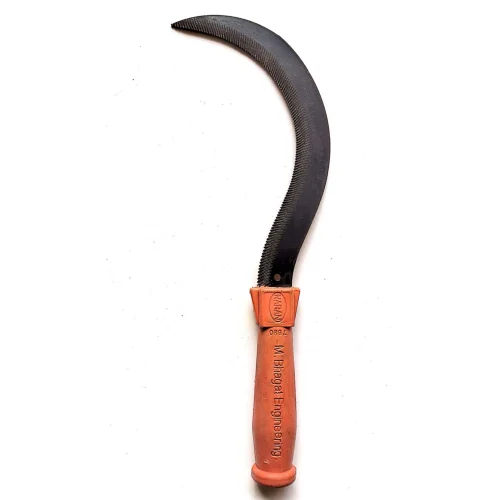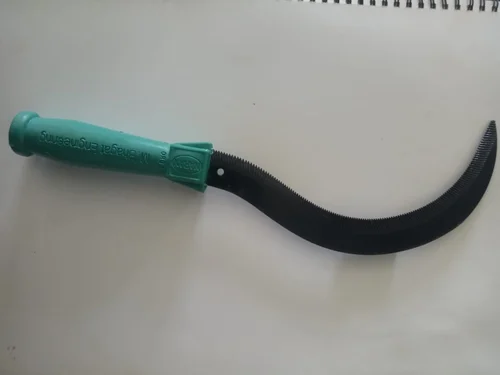13inch Agricultural Hand Sickles
₹29.0
| Size | 13 Inch ( Length) |
| Blade Material | Carbon Steel |
| Model Name/Number | 9 |
| Usage/Application | Agriculture |
| Brand | MBE |
| Color | Green And Black |
| Blade Thickness | 1.5 mm |
- Description
- Additional information
- Reviews (0)
- Q & A
- Sustainability Remark
- More Offers
- Store Policies
- Inquiries
We V.V Manufacturer based in Rajkot Gujarat are Leading Manufacturer & Supplier of PVC / Plastic Agriculture Hand Sickel & Wooden Agriculture Hand Sickle and We can Supply All Over in India.
| brands | MBE |
|---|
You must be logged in to post a review.
Q & A
Harvest management tools can significantly contribute to sustainability in farming by improving efficiency, reducing waste, and optimizing resource utilization. Here are some ways in which these tools promote sustainability:
Efficient resource allocation: Harvest management tools help farmers plan and schedule harvesting activities more effectively. By analyzing factors such as crop maturity, weather conditions, and labor availability, farmers can optimize the allocation of resources such as manpower, machinery, and storage facilities. This reduces unnecessary resource use and ensures that resources are used efficiently.
Reduced food waste: Accurate harvest management tools enable farmers to harvest crops at the optimal time, minimizing post-harvest losses. By avoiding premature or delayed harvesting, farmers can reduce spoilage, improve product quality, and decrease food waste. This not only reduces environmental impact but also helps meet the growing global demand for food.
Energy and fuel efficiency: Harvesting often involves the use of machinery, which consumes energy and fuel. Harvest management tools assist farmers in planning harvesting operations based on factors such as crop readiness and weather conditions. By minimizing unnecessary field trips, optimizing equipment usage, and streamlining harvest routes, these tools can reduce energy consumption and greenhouse gas emissions.
Data-driven decision making: Harvest management tools collect and analyze data related to crop yield, quality, and field conditions. This information enables farmers to make data-driven decisions about post-harvest processes, such as storage, processing, and transportation. By understanding crop characteristics and demand patterns, farmers can reduce waste and make more informed decisions about marketing and distribution.
Traceability and transparency: Some harvest management tools incorporate traceability features, allowing farmers to track the journey of their products from field to market. This promotes transparency and accountability in the supply chain, supporting sustainable farming practices and ensuring food safety standards are met.
Continuous improvement: Harvest management tools provide farmers with valuable data and insights about their harvesting operations. By analyzing this information over time, farmers can identify areas for improvement, implement best practices, and refine their strategies for future harvests. This iterative process contributes to long-term sustainability by optimizing resource use and reducing environmental impact.
It's worth mentioning that the sustainability of harvest management tools also depends on factors such as their compatibility with local farming systems, accessibility to different farming communities, and the integration of these tools with broader farm management practices. Additionally, ongoing research and development in this field can further enhance the sustainability benefits of harvest management tools.
General Inquiries
There are no inquiries yet.



















Reviews
There are no reviews yet.